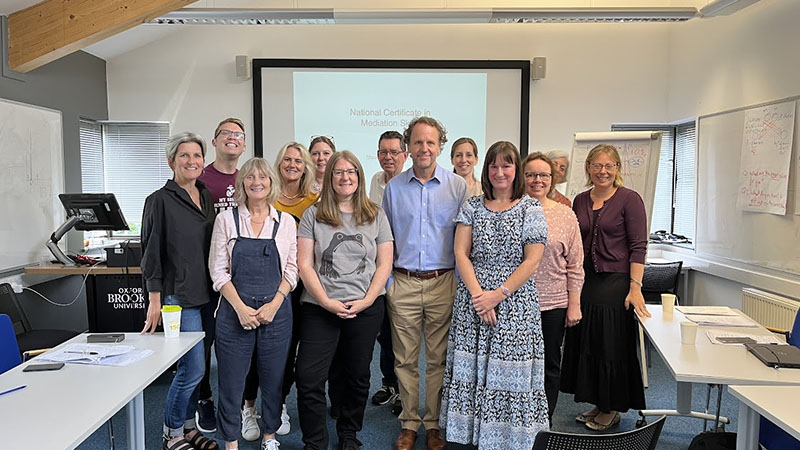Mediation and facilitated conversations
Mediation is a way of resolving disputes and disagreements where an impartial third party (a mediator) helps the individuals involved in a dispute to identify and negotiate an acceptable and appropriate resolution to their problems.
Mediation has a number of benefits in the workplace that include:
- Providing a safe, non-adversarial and non-confrontational approach to dispute resolution
- Helping achieve an early resolution of conflict
- Building bridges and restoring working relationships
- Reducing stress

The University encourages all parties to consider mediation at the earliest opportunity as a way of resolving a dispute at work. Mediation can improve staff morale, promote healthy working relationships and bring about a deeper understanding between colleagues. All staff are strongly encouraged to resolve potential disagreements in the workplace through informal approaches where appropriate, for less serious disputes. This is set out in our Resolving issues at work policy. Even when disputes have become formal, they can be paused at any stage and mediation can be employed to resolve the issues.
ACAS defines mediation as “a way to mend relationships when there is a disagreement at work.”
Mediation provides a confidential opportunity to raise issues involving a neutral person (a 'mediator') who is impartial and they do not take sides. The mediator ‘s role is to help those involved find a solution they can all agree to. Mediation looks at how those involved can work together in the future and is not about judging who was right or wrong in the past.
Mediation is often a quick way to resolve disagreement at work and is:
- less formal
- flexible
- voluntary
- confidential
- usually not legally binding
Mediation is confidential and any agreement made is between the parties and will not be discussed with anyone else such as line managers.
A facilitated conversation is a similar format to mediation but the difference with Facilitation is that both particles, if in agreement, can choose to share the agreement they have made with specific agreed people which needs to be documented, no other details about what was discussed should be shared with anyone whether in writing or through discussion
European Code of Conduct for Mediators - This code of conducts sets out how Oxford Brookes Mediators operate.
If you would like to discuss mediation or a facilitated conversation and whether it would be suitable for a particular situation, then please contact the People Directorate, pd-employment.relations.team@brookes.ac.uk who will be able to advise.
